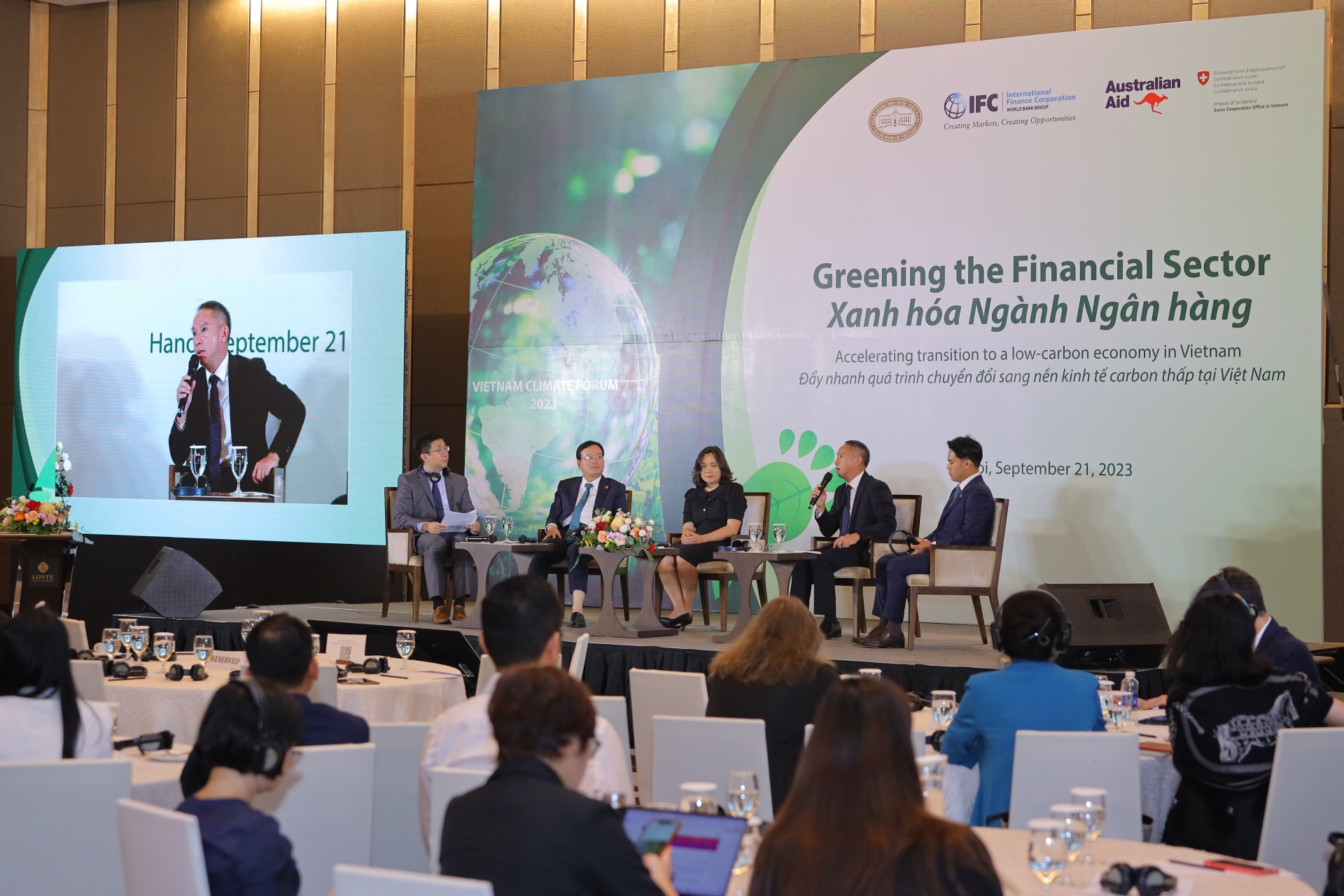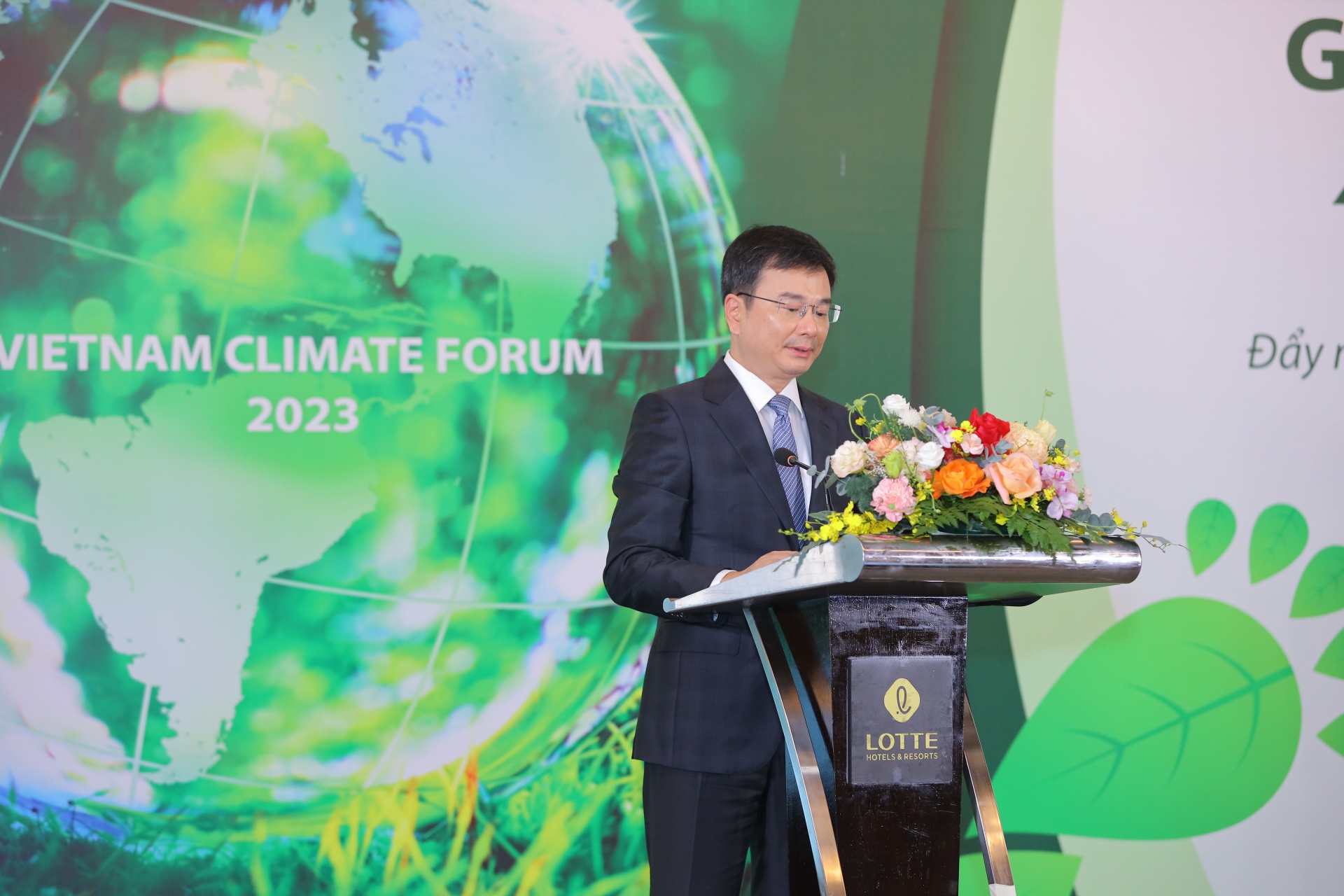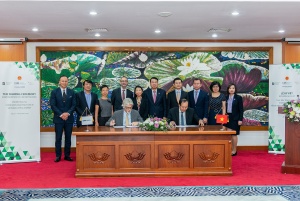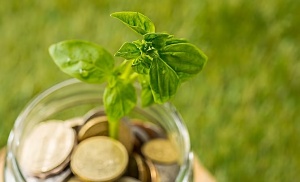Forum discusses impact of climate change
 |
At the forum, held also thanks to the Swiss State Secretariat for Economic Affairs and the Australian Department of Foreign Affairs and Trade, speakers emphasised the substantial challenges faced by the climate finance sector in Vietnam in aligning significant investment opportunities with environmental objectives.
This sentiment was shared by Allen Forlemu, the IFC's regional industry director for Financial Institutions Group, Asia-Pacific, when he said, “It is evident that climate change is an increasingly disruptive factor for Vietnam's economy, and the costs are already starting to undermine growth. In 2020, Vietnam lost $10 billion, or 3.2 per cent of its GDP, to climate change impacts.”
“If nothing is done, costs will only rise. In a business-as-usual scenario with limited global mitigation efforts, climate change could cost Vietnam up to 14.5 per cent of GDP annually in roughly 30 years, with the potential to push a million people into extreme poverty in less than a decade,” he added.
Addressing climate change is a strategic cornerstone for the World Bank Group, and Forlemu emphasised the IFC’s collaboration with financial institutions and development partners worldwide to provide millions of individuals and businesses with opportunities to access critical financial services.
 |
| Pham Thanh Ha, Deputy Governor of the State Bank of Vietnam |
Pham Thanh Ha, Deputy Governor of the SBV, also stressed the urgent need to meet environmental commitments. The banking sector has been actively aligned with the goals set by the government in the National Green Growth Strategy for the 2021-2030 period, with a vision towards 2050.
“All businesses must view this as an opportunity but also an imperative. The banking sector recognises this as a critical area that needs to be pursued,” he said.
Specific achievements worth noting include the approval of the Green Banking Development Project in Vietnam, the establishment of the Environmental, Social, and Governance (ESG) Steering Committee, and the creation of the Sustainable Finance Project Management regulations.
Ha expressed hope that foreign credit institutions and foreign bank branches would gain a better understanding of Vietnam's legal environment as the country moves towards net-zero emissions and the financial sector transitions towards green finance. This understanding will enable them to leverage investment opportunities in climate-related projects through the domestic capital markets.
In the same vein, Pham Thi Thanh Tung, deputy director general of the the SBV’s Department of Credit for Economic Sectors, said, “The SBV has implemented various solutions to encourage credit institutions to contribute positively to the national green growth strategy, and the banking industry is committed to fulfilling the government's objectives.”
Phan Thanh Hai, deputy CEO of BIDV, revealed that the bank has established an ESG Steering Committee and a Sustainable Finance Project Management team as part of its institutional development. BIDV's business strategy for the period up to 2025 and vision until 2030 includes a focus on green credit development, green banking, and activities that promote the growth of green credit and risk management, environmental protection, and social responsibility.
“BIDV has invested in modern IT to minimise paper and plastic use and promote digital transformation internally. Furthermore, we are actively involved in community activities that raise environmental awareness and support disadvantaged communities,” he said.
The bank is also focusing on projects related to climate adaptation, energy transition, and clean transportation, prioritising green projects that have access to preferential funding from financial institutions. As an intermediary bank receiving international funding from sponsors, BIDV introduces domestic clients to these funds, manages disbursements and collateral assets, and ensures compliance.
 | Opportunities and challenges for Vietnam in financial sector reform Carolyn Turk, country director for the World Bank in Vietnam, delves into the opportunities and challenges Vietnam faces as it builds a resilient and modern financial sector legal and regulatory framework. |
 | Boosting green finance for a low-carbon economy in Vietnam As Vietnam aims for a low-carbon growth model and carbon neutrality by 2050, the International Finance Corporation (IFC), in partnership with the Swiss State Secretariat for Economic Affairs (SECO), is scaling up its support to the government to promote sustainable finance and spur private sector investment. |
 | Vietnam’s first local currency sustainability-linked bonds aim to boost economy The International Finance Corporation (IFC) is investing around $150 million in local currency sustainability-linked bonds (SLBs) to be issued by BIM Land JSC and its subsidiary Thanh Xuan JSC. |
What the stars mean:
★ Poor ★ ★ Promising ★★★ Good ★★★★ Very good ★★★★★ Exceptional
 Tag:
Tag:
Related Contents
Latest News
More News
- Trung Nam-Sideros River consortium wins bid for LNG venture (January 30, 2026 | 11:16)
- Vietnam moves towards market-based fuel management with E10 rollout (January 30, 2026 | 11:10)
- Envision Energy, REE Group partner on 128MW wind projects (January 30, 2026 | 10:58)
- Vingroup consults on carbon credits for electric vehicle charging network (January 28, 2026 | 11:04)
- Bac Ai Pumped Storage Hydropower Plant to enter peak construction phase (January 27, 2026 | 08:00)
- ASEAN could scale up sustainable aviation fuel by 2050 (January 24, 2026 | 10:19)
- 64,000 hectares of sea allocated for offshore wind surveys (January 22, 2026 | 20:23)
- EVN secures financing for Quang Trach II LNG power plant (January 17, 2026 | 15:55)
- PC1 teams up with DENZAI on regional wind projects (January 16, 2026 | 21:18)
- Innovation and ESG practices drive green transition in the digital era (January 16, 2026 | 16:51)





















 Mobile Version
Mobile Version